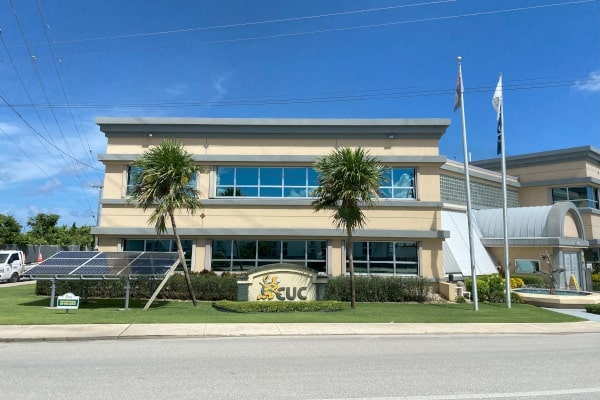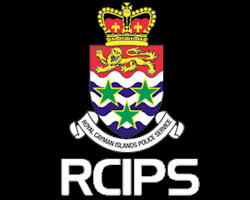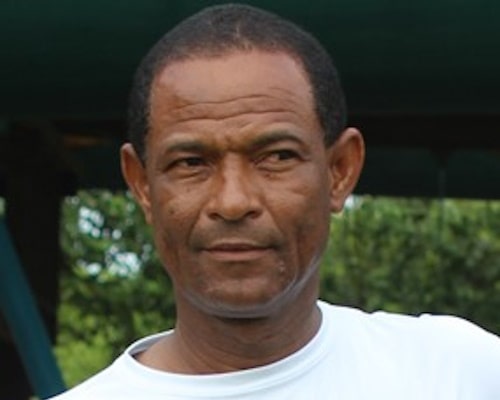Major cash cream-off revealed in fraud trial
(CNS): Local businessman Canover Watson and his long-term friend and business associate, Jeffrey Webb, may have taken more than half a million dollars of public money for themselves in the CarePay hospital contract fraud, according to the prosecution. As the case against Watson and his former PA, Miriam Rodrigues, continued Wednesday, the focus was on the money trail, a complex web of financial transactions by Watson and Webb, the involvement of more companies and business associates, as well as mounting deceptions, all of which are documented in reams and reams of emails that form the basis of the crown’s case.
Among the further allegations made during the third day in which Patrick Moran, the deputy director of public prosecutions, outlined the prosecution’s case, a complex story of corruption and manipulation emerged. But on Wednesday the crown focused heavily on Watson and Webb, Cayman’s former football boss, who is absent from the dock, rather than Rodrigues, who was barely mentioned.
The crown’s lawyer claimed that within days of the contract for the card payment system at the hospital being signed between the Health Services Authority (HSA) and the government insurance company, CINICO, on the one hand and AIS (Cayman) Ltd on the other, Webb and Watson got their first share of the start-up costs. In a series of transfers, bank payments and withdrawals, some $250,000 found its way into the accounts of companies the men owned or were connected to in some way.
During the course of 2011, Moran said, the men used the cash to buy expensive homes in Atlanta and were gearing up for other business ventures that would allow them to siphon off even more cash from public projects. They would get AIS in pole position for another public contract, this time for the payment system at the hospital pharmacy.
Watson was also accused of manipulating the contract document and misleading the health minister at the time, Mark Scotland, telling him that the contract had included an obligation for the national roll-out of the CarePay system to the private sector as well as CINICO. Watson told Scotland that this would need to be additionally funded and, Moran said, Watson intended to gain from this substantially.
The prosecutor also directed the jury to an email from a former Cayman Islands Football Association (CIFA) official and friend of Jeff Webb by the name of John Thompson, which was sent on 2 February to Webb and forwarded to Watson. In the correspondence Thompson revealed that Webb was paid $200,000 by AIS in Jamaica for introducing that company to Cayman and assisting them with the contract bid.
But Thompson berated Webb and appeared to imply he had been disrespected and had not got his fair share, pointing to the $200,000 his friend had received while he only received $4,000, despite being involved in the introduction. He threatened to “blow the lid on the whole thing”, as he made it clear he wanted a bigger cut.
Webb forwarded the email to Watson and in response the HSA chairman asked Webb to call him as soon as possible. The next morning, in correspondence between the men relating to another separate business venture they share, Webb urged caution until they find out more about “our exposure”. In response, Watson emailed back one word: “understood”.
Speaking to the jury, Moran said, “The truth is obvious; they were in it together.” However, at that point there was no ‘blowing of the lid’, as the men pressed on, he said.
Moran took the jury through documentation that revealed deceptions, altered and false contracts, and even a scheme to help the men launder money. Watson, he said, drew up a spoof contract of employment for Webb as the MD of AIS Cayman Ltd, earning $180,000 a year — a job, according to the contract, he had had since 2008, despite the fact that AIS had only been created by Watson in 2010 and at the time Watson was employed by Fidelity bank.
But the document was used to help Webb secure a mortgage and an account with Wells Fargo in the US to buy his home in Atlanta and make the funds he received from AIS, which he was using as a deposit, appear to be legitimately earned salary.
As the prosecutor took the jury through the twists and turns of the cash transfers and business interests of the men, Moran painted a picture of deception and dishonesty. He showed that time after time Watson was doing the work for AIS and dealing with issues relating to the company, from organizing logos on business cards to sending information to AIS in Jamaica to help them secure the pharmacy contract.
He showed correspondence where Watson was emphatic that he should remain as the leader on the implementation of the CarePay project, rejecting suggestions that the Health Service Authority’s chief information officer, Dale Saunders, should take over the day-to-day management of what was essentially an IT project. But Saunders remained a dissenting voice in the whole CarePay project, as he had persistently raised concerns about the various problems of transitioning and wanted to delay the full-scale launch, a move Watson also vehemently resisted, the crown said.
Moran said there was nothing wrong with Watson, as project leader, wanting to keep the thing on track, “but his desires were also motivated by lining his own pocket,” the crown’s lawyer said, noting that he was due to get another chunk of cash as well as a cut of the transaction fees once it all went live.
As plans for the pharmacy payment system advanced, and especially when another bidder came on the scene, Watson continued to send sensitive, and in some cases confidential, correspondence regarding the cost details of the system at the time, as well as the company’s details to his AIS partners in Jamaica.
As he continued to take the jury through the paper trail of business interests and financial transactions, Moran revealed that Watson created another arm of AIS, this time in the British Virgin Islands.
Moran showed correspondence that revealed how Watson incorporated AIS Consulting Ltd in the BVI, but this time it was a lone venture, as he was the only director and the only person who appeared to know. Moran said that Watson was setting himself up to be the beneficiary of his plan to ensure that the payment contract would go nationwide. He “intended to benefit personally” and was therefore keeping this company far away from Cayman.
The case continues in Court 5 at 10:30am Thursday.




































